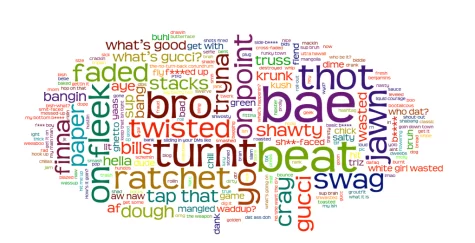Unity in Slang
Studies show that recent uses in slang can affect more than you think.
Since the beginning of time, humans have used many means to communicate. Whether it’s sign language, English, Spanish, or French, everyone has a way to communicate. In our daily lives, we use informal communication, otherwise known as slang. Slang, according to Google, is defined as, “a type of language that consists of words and phrases that are regarded as very informal, are more common in speech than writing, and are typically restricted to a particular context or group of people.” Slang is phrases or words of meaning that correlate to specified groups. The use of this diction has a large impact on society that could be seen day after day.
Slang can help form an identity for those who use it. In an article published by Michigan State University, Drew Goretzka talks about the way slang can unite and divide society by the sole use of syntax. Goretzka states, “Using the same terminology as your friend, colleague or peer makes you feel like you’re part of something — like you belong. Alternatively, if you don’t know a group’s vocabulary, you may feel isolated, as you’re not able to fully follow the conversation full of foreign terms.” Slang provides a sense of understanding and acknowledgment, which results in a community meshing as one. Unfortunately, slang also disconnects. It divides the young from the old and creates a modern language barrier. Younger generations go through slang the same way children go through candy: too much, too fast. Slang spreads like wildfire, making it difficult for older generations to keep up with the current words and their new meanings. This could be credited to the widespread use of social media among teenagers.
This younger generation has shown the large impact that slang can have on students’ performances in school. Negative or positive, it’s clear that slang truly affects those who wield it. English teacher Alastair Arran writes in her article, How Does Social Media Slang Affect Learning? that slang causes errors in grammar and written skills. Arran writes, “Social media slang has adversely affected the verbal and written skills of students. Students show poor performance in reading and writing.” On a less bleak note, slang is also a way for people to express themselves and make communication much more exciting and less awkward. Language can be very formal and relatively stressful, and slang helps break the tension and create comfort within a group.
Slang is a bridge to new groups of people, connecting and shaping the people we are and the people we become. Though some effects could be negative, it’s clear the pros outweigh the cons. Slang has been around as long as language has, and is a defining characteristic of each generation. So, the next time you use a saying like “gas”, or “on god”, though you might not realize it, you are interacting with something larger than yourself and affecting yourself and those around you, one phrase at a time.
